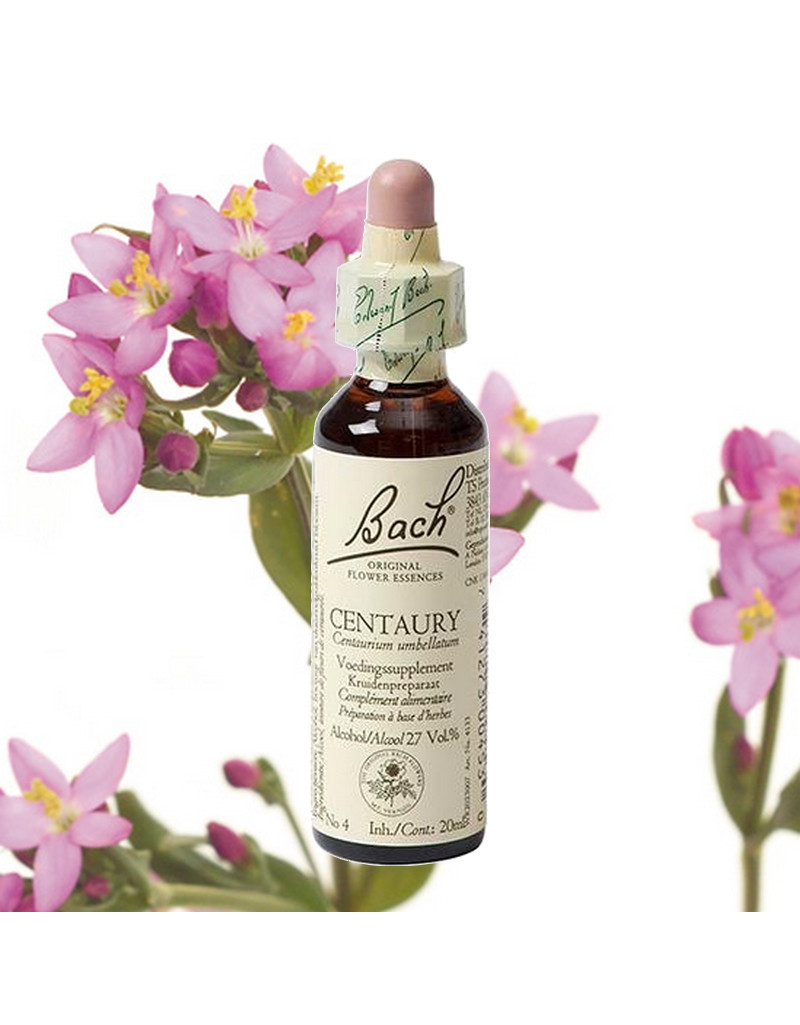

What is a floral elixir according to Dr. Bach?
Dr. Edward Bach (1886-1936) assumed that certain negative emotional states can have a detrimental effect on our bodily well-being. Thus, rather than directly relieving a physical dysfunction, he advocated the restoration of a psychological balance based on the use of 38 different flowers with harmonizing and positive strength.
This method does not claim to be the solution to all the physical or moral inconveniences that can be encountered but it can play a significant supporting role in case of emotional imbalance.
Overview
This flower is for shy, passive, docile people of a submissive nature, to all those who, to "feel someone" must rely on a strong personality, to make himself fully available until to become his "slave". They are peaceful and good creatures who would like to give the maximum of themselves to others. Children of this type do not create problems for their parents and help their classmates, who benefit from them selfishly, by having them do their homework or by appropriating their toys. The nature medicatrix has printed such a behavior in the signaling of the herbaceous flower Centaury: it is capable of transforming the hypersensitivity to the ideas of others in assertion of oneself, in emotional rebalancing, in recovery of the force of the will, in faculty of fight to properly defend one's own demands.
The pink and purple flowers are the artisans of a great rebalancing character. One of the characteristics of these shy, humble and helpful people is to be sensitive to the language of colors; their delicate soul tends to sacrifice itself for the good of others. The pink color can symbolize sweetness, femininity, submission to others; it expresses the desire to improve spiritually and the impulse towards harmony. The purple color, full of energy vigor, collects in its chromatic load the availability and the need of energetic activation of the pink color. In the background, we always find the emotional immaturity of the adolescent, associated with emotional instability. However, the result of the meeting between the pink and the purple ensures the shy and helpful person the possibility of being realized. When one becomes what one wants to be, one ends up in a balanced collaboration with the others, as equals, while maintaining one's own personality intact and not losing sight of the specific mission that one has in life, help others.
Negative states of mind
- Excessive and inappropriate need to help others, even if one can get away from it.
- Desire to assist others to become their servant.
- Nature that pushes to do the work of others by not taking any account of oneself.
- Put the opinions and needs of others ahead of one's own interests.
- Avoid discussions and arguments because of submission to others and / or fear.
- To deprive oneself of all the moments of joy by refusal to reason by oneself.
- Rely on stronger, authoritarian characters with opportunity or generosity.
- Always end up being the person who is humiliated and offended.
Psychological therapeutic indications
- Pathological obsession with being inferior to others with whom one identifies.
Frustration due to an inferiority complex in the person who suffers the desires of others.
- Masochism that is found in the emotions of one who wants to please his superiors or hides outbreaks of repressed sexual aggressiveness.
- Depressive neurotic disorders accompanied by a feeling of social maladjustment.
- Histrionic behavior to attract the attention of others.
- Malaise of the type "complex of the martyr" for the person who sacrifices himself for all the others in the family, between friends or at work.
In children
- Great spirit of conciliation from the youngest age: docility, too much obedience.
- Inferiority or hardship complex compared to classmates.
- Hypersensitivity to the praise sought by obedience.
- taciturn children who do not create any problem for their parents.
- Child who stays calm by aboulie or to attract the sympathy of the big ones
Psycho-organic therapeutic indications
To fall easily sick without obvious tents.
Face darkened by dark circles especially if the subject suffers from anemia or kidney disorder.
Cardiac disorders, tachycardia due to frenzy in obedience to others.
Gastritis, dyspepsia, irritations of the colon because of an obliging subjection towards the others, especially if they are superiors or co-workers.
Dorsal and lumbosacral vertebral pains due to frantic anxiety to serve others.
Spine pain when trying to always bend your back to someone else's benefit.
Exhaustion, a feeling of chronic fatigue for people who feel the need or the need to assist disabled or disabled relatives.
Characteristics of healing
It must be convinced that the person must above all think of himself, satisfy his own needs and serve his neighbor after himself.
The realization of oneself and a determination reaffirmed really about his lost vitality. Thanks to the will, he finds a taste for life.
Manual
2 drops under the tongue, or diluted in water, 4 times a day, including in the morning on an empty stomach and at bedtime.
Composition
Grape alcohol 27% v/v, aqueous solution of Centaurium umbellatum Gilib flowers. (dilution 1/500).
Precautions for use
Do not exceed the recommended dose.